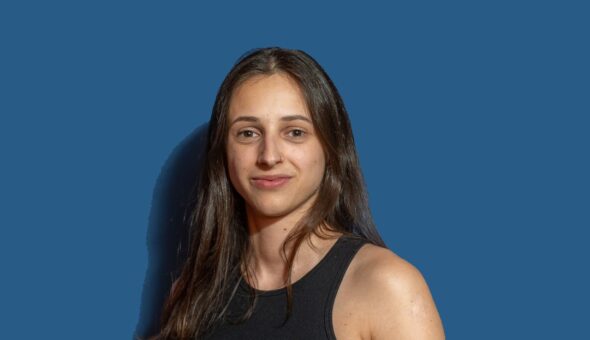Is Twitter just a distraction from your research? Looking for some top tips on using social media? At this year’s Academy of Management Annual Meeting, a group of ten responsible business influencers and business management scholars came together to deliver a professional development workshop (PDW) on social media, organised by the University of Bath School of Management. The aim of the workshop was to break the silence around the use of social media in supporting research activities for Social Issues in Management (SIM) scholars and beyond. Here, Alex Hope (@DrSustainable), one of the participants, rounds up the key points from the discussion.
Many academics use Twitter and other social media platforms to disseminate their research and engage in debate around critical social issues affecting business. The workshop focused on the benefits and drawbacks of social media for scholars, and asked how can we achieve balance in building an engaged audience online whilst managing competing (or complimentary?) tasks of research, teaching and university administration.
Why should academics use social media?
The session was introduced by Andrew Crane (@ethicscrane) who began by asking @andre_spicer why and how he uses social media in an academic context. Andre explained that it was a way of connecting with a broader audience than is often possible through more traditional outlets such as journal papers or book chapters. He also said that he found blogging was an effective way to improve academic writing as it requires succinct and clear communication.
@TanusreeJain explained that she took a strategic approach to engagement with social media, which she started using during her doctoral studies to counteract the isolation that often comes with undertaking a PhD. This then evolved into a way to keep up with the academic job market, researching potential employers as well as building a network and community of practice. She advised that it was useful to focus on one platform, in her case Twitter, which she found the best placed platform to engage with other academics through topics such as #PhDchat.
What’s the best way to engage on social media?
@JosepMLozano described how in his posts, he chooses to focus on two or three social issues primarily in the areas of CSR, sustainability, Spanish politics and social debate. His aim is to be useful, to share posts such as short reviews of books he has read or share new academic or news articles. He always prefers to add some commentary to information he shares, to give a viewpoint as a professional academic. He writes in both his native Spanish as well as English and devotes around 15 minutes a day to his social media activity, relying on Hootsuite to manage and schedule his posts to go out at the right time of day. Thinking about the time at which you post to social media is important, especially considering the international nature of academia working across time-zones.
How should I manage the balance between public and private?
Participants were keen to understand issues of boundaries and authenticity, how to keep your own identity or balance personal and professional life. @TanusreeJain said she believes that an individual’s strategy and use will evolve over time but that is important to be authentic about who you are and what you share. She warned against getting sucked into just trying to get followers or retweeting everything you see on Twitter. Instead, it’s important to establish what you want to get out of your engagement. @JosepMLozano agreed that authenticity is important. He advises to just be yourself and adopt the attitude that you should share what you feel is important for your audience to know.
How can I increase my followers?
Top thinklister Ioannis Ioannou (@iioannoulbs) has close to 40,000 followers, possibly, he says, because he expresses opinions on everything and follows a lot of people. People tell him that his Twitter is a curated list on sustainability, CSR and climate change related issues which they find a useful resource. @WayneVisser pointed out the trade-off between quantity and quality. One strategy to gaining followers is to be extremely controversial (the Donald Trump strategy) or follow lots of people, but then you get a lot of noise. @ThBeschorner advised that writing articles for newspapers and other outlets helps to raise your profile, as they will then Tweet you to their audience which in turn gains you followers and enables you to engage in conversation.
Which platform is most useful?
Much of the session focused on Twitter as this is perhaps the most widely used medium among those present, however @WayneVisser questioned whether Twitter is indeed the best tool for academics. He finds LinkedIn more useful for its ability to have a deeper argument and now shapes his posts on LinkedIn and then shares these via Twitter. In contrast, @andre_spicer finds LinkedIn uninspiring and suggested that perhaps academics should be considering Instagram and other more visual media platforms. He wondered what academic Instagram may look like, however @TanusreeJain pointed out that Instagram can be a difficult platform to engage with as it requires users to spend so much time on the visual rather than the academic content.
Top tips
- Don’t drunk tweet…ever
- Remember even personal accounts may be perceived as representing your institution
- Don’t just tweet outwards all the time - engage in the conversation
- Remember the value of controversy in provoking the conversation
- Use hashtags to filter the information
- Don’t feed the Trolls - you don’t have to engage if you don’t want to
- Use social media as an opportunity to be more active in public debate
- Just be yourself
- Remember that all platforms are different
- Create good content first and then share on social media.
The PDW was developed by Dr Sarah Glozer (@Sarah_CSR )and led by Professor Andrew Crane (@ethicscrane) of the Centre for Business, Organisations and Society (@BathCBOS) at the University of Bath School of Management. Our speakers are all part of the #thinklist - a list of social media’s most influential faculty thinkers on issues of responsible business, created by CBOS.
The #thinklist influencers taking part included:
- Andre Spicer, City University of London, UK @andre_spicer
- Josep M. Lozano, ESADE Business School, Spain @JosepMLozano
- Martina Linnenluecke, Macquarie University, Australia @mlinnenluecke
- Thomas Beschorner, University of St.Gallen, Switzerland @ThBeschorner
- Kam Phung, York University, Canada (representing the Twitter account for the SIM division) @aom_sim
- Alex Hope, Northumbria University, UK @DrSustainable
- Tanusree Jain, Trinity College Dublin @TanusreeJain
- Wayne Visser, Antwerp Management School, Belgium @WayneVisser
- Ioannis Ioannou, London Business School, UK @iioannoulbs
- Andre Sobczak, Audencia, France @andresobczak
Header image by rawpixel
Respond



